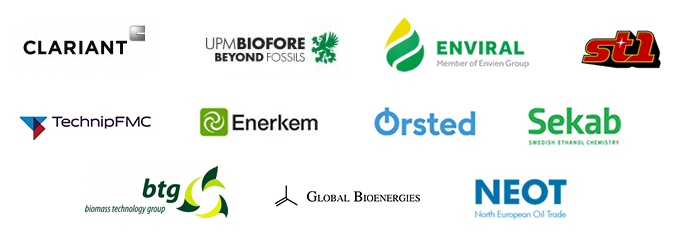![]() Download this position paper in pdf format
Download this position paper in pdf format
The Advanced Biofuels Coalition (LSB) is committed to contribute to the increased EU climate ambition, the 2030 targets and climate neutrality by 2050. Revisiting existing legislation and proposing new measures is unavoidable but must happen with caution to safeguard existing and planned investments.
The EU is experiencing an unprecedented need for green investments, such as investments in the advanced biofuels sector, in order to boost green growth, innovation leadership, new jobs, reduced dependency on foreign oil – all resulting in emission reductions. At the same time substantial funding is available to leverage such investments.
To maintain companies’ ability to invest during the regulatory uncertainty created by the revision we call for a limited and focused revision of the Renewable Energy Directive (REDII). If the revision was extended to areas which do not need to be revised, the Commission endangers investments in a sector which has started to rapidly grow based on REDII which is barely three years in place and still being implemented by the member states.
The Advanced Biofuels Coalition calls upon European Commission and the co-legislators Parliament and Council to consider the following 7 points to further develop advanced biofuels supporting the EU’s defossilisation agenda:
Renewable Energy Directive
- Advanced biofuels mandate is driving investments: A dedicated mandate is the best instrument to drive the investment for advanced biofuel production capacity. The new climate and energy ambition should translate in a dedicated sub-target of at least or more than 3.5% for 2030. This target should not be undermined by the use of multipliers.
- Protect the Annex IX part A: Investments are made on the basis of the feedstock list of Annex IX A. Therefore, it is crucial that the feedstock list is revised in a scientifically sound and credible way and not subject to the co-decision process. It should also only be allowed to add new feestocks that require innovative production technologies; removing feedstocks would lead to insecurity for investments already made in good faith. Any inclusion of additional feedstock must be coupled with an increase of the overall mandate, corresponding to the market potential of the newly added feedstock.
- Current biofuels sustainability criteria are effective: the sustainability criteria, transparency, certification and verification requirements of biofuels are comprehensive and provide guarantees of sustainability to stakeholders. Therefore, we do not support a revision of the existing sustainability criteria.
- LSB underlines that the advanced biofuels mandate for Annex IX part A biofuels must be implemented across the EU regardless of the 2030 revision. Only by securing timely and harmonized implementation of the existing requirements the EU Commission and member states can be credible with their climate commitments.
ReFuelEU Aviation & Maritime
- Aviation and maritime sectors are future markets: Advanced biofuels provide a huge potential for de-fossilizing aviation and maritime sectors for decades to come. However, the road transport sector is, considering its size, an important biofuel market that must be maintained in order to make the necessary investments in production capacity and to further slide down the cost curve. To avoid lock in effects linked to the distillation curve it is important to start replacing jet fuel and bunker fuels by sustainable, advanced biofuels now: With every drop of fossil jet fuel produced automatically large volumes of fossil gasoline and diesel are produced. Still, advanced biofuels should not be exclusively reserved for aviation & maritime transport. To set the right path, these sectors should be mandated in addition to the current advanced biofuels mandate in REDII.
CO2 standards for vehicles
- All solutions to net carbon neutral transportation are needed. Therefore, it is paramount to recognise and include the renewable fuel dimension in the revision of the CO2 emissions standard regulation for vehicles. Addressing the CO2 emissions only at the tailpipe is not sufficient to ensure a carbon neutral mobility. Only by applying a methodology that measures the vehicle’s emissions from well-to-wheel irrespective of the energy used we can establish the true amount of CO2 reduced.
Energy taxation directive & ETS extension to road transport
- Introducing a price for CO2 in the road transport sector is a crucial element. To address this the revision of the Energy Taxation Directive should base the minimum taxation rates on energy content in order to create a level playing field between fossil fuels and biofuels and include a CO2 tax element from which sustainable biofuels are exempt. The inclusion of road transport into the existing Emission Trading Scheme would be the wrong way: Effectively reducing CO2 emissions from transport through the ETS would result in substantially higher fuelling costs. An effect that would go against the concept of ‘leaving no one behind’ as expressed in the Green Deal Communication.1
We call upon the Commission to stay committed to a regulatory framework that will make Europe a leading example in the use of the most sustainable and technologically advanced biofuels and alternative fuels.
LSB members are committed to working together with the European Commission, European Parliament and the member states to ensure best possible investment climate for advanced biofuels which will support the transport emission reduction goals of the EU.
***
About the Advanced Biofuel Coalition LSB:
LSB is a coalition of leading advanced biofuels producers and technology providers committed to making a strong contribution to meet the EU ambitions of reducing transport emissions. LSB is working closely with the EU institutions and the Member States and promote the use of advanced biofuels in the European Union. How many companies from how many countries.

1) https://europeanclimate.org/resources/impacts-of-extending-the-ets-to-transport-and-buildings/

